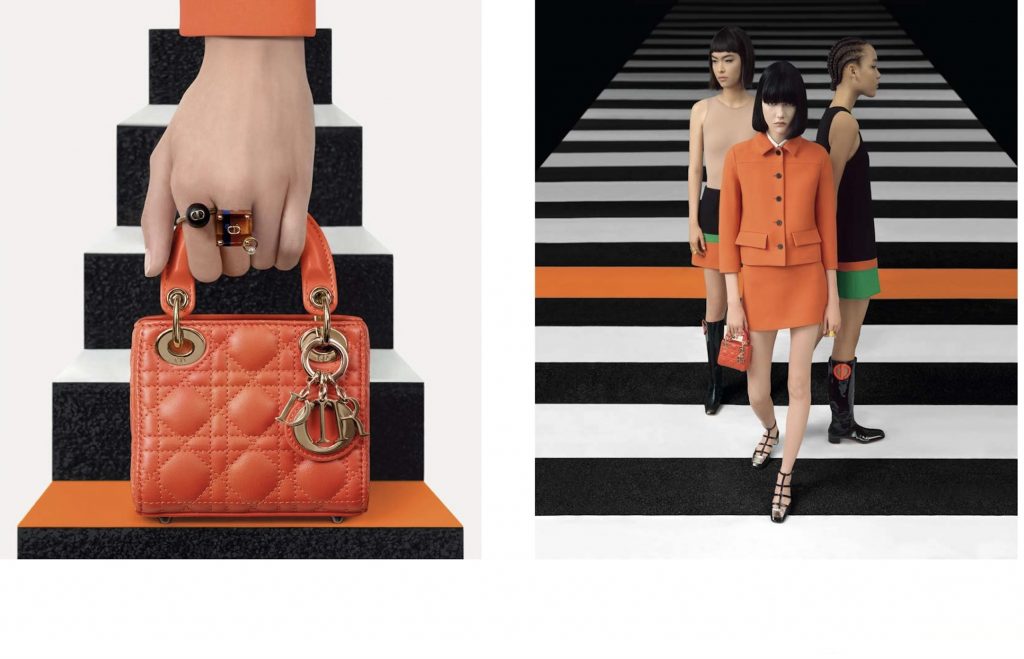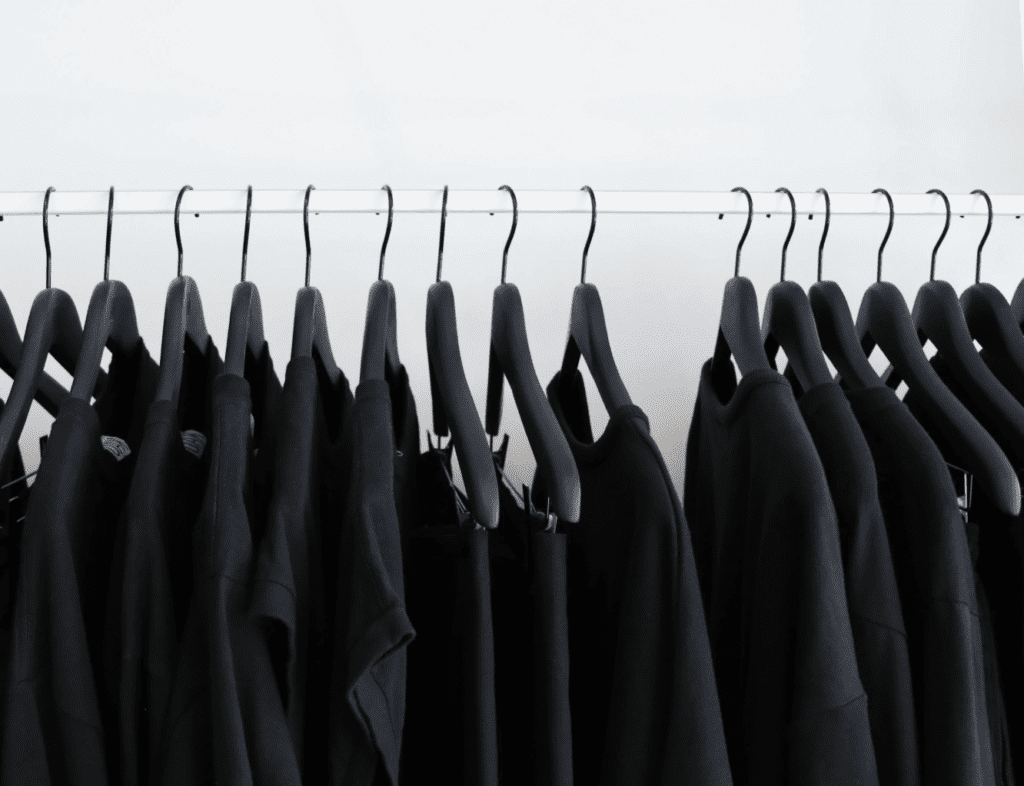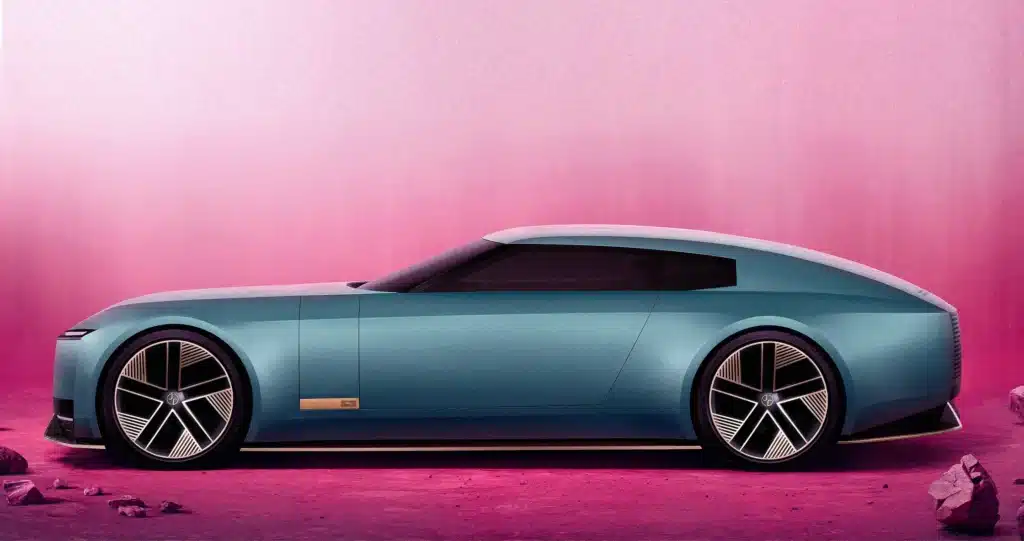Mercedes-Benz topped a list of Europe’s most valuable brands, Brand Finance revealed, with the value of the German car-maker up 6 percent to €52.4 billion ($55.30 billion) despite “only moderate growth in a tough year for automotive brands.” While car companies and service providers like T-Mobile, Allianz and EY, as well as giants, such as Shell and Siemens, are among the most highly ranked on Brand Finance’s new “Europe 500” list, luxury names like Louis Vuitton are not absent, with the LVMH-owned luxury goods brand taking the number 8 spot and touting the greatest “brand value change” – 59.7 percent on a year-over-year basis, putting the 2022 valuation of its brand at €20.2 billion ($21.32 billion).
In furtherance of its “Europe 500” list, Brand Finance examines the 5,000 “biggest brands” across various segments and markets and ranks companies by “brand value.” The London-based consultancy defines its central metric as the value of the “names, terms, signs, symbols, logos, and designs” that a company uses to identify and distinguish its “goods, services or entities” from those of others, thereby creating “distinctive images and associations in the minds of stakeholders and generating economic benefits” for the company as a result.” Put another way, it defines brand value as “the net economic benefit that a brand owner would achieve by licensing the brand in the open market,” whereas brand strength is “the efficacy of a brand’s performance on intangible measures relative to its competitors.”
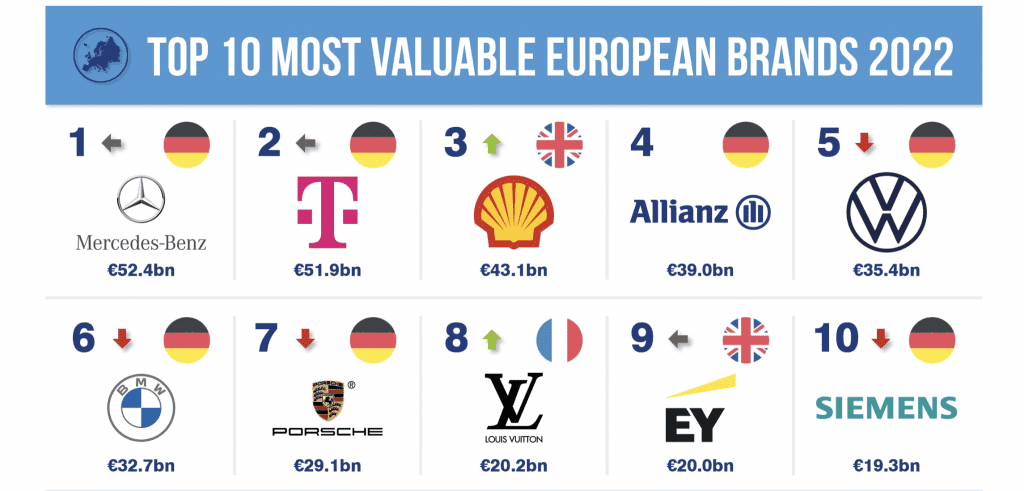
Aside from Louis Vuitton taking the number 8 spot, Gucci ranked in at 17 (up from 22 last year) with a brand valuation of €15.6 billion; Chanel ranked at 24 (up from 27) with a valuation of €13.16 billion; Hermès fell further down the list at number 30 (up from 34) with a brand valuation of €11.6 billion; Cartier took the number 36 spot (down from 32) with a valuation of €10.7 billion; Dior came in at number 53 (up from 60) with a valuation of €7.78 billion; and Rolex landed in the number 59 spot (down from 58) with a valuation of €7.2 billion (despite falling one spot, its overall brand valuation change was up by 6.5 percent).
Meanwhile, Burberry took the number 127 spot (from 147 last year), Moncler is up to 165 (from 202), Yves Saint Laurent nabbed 169 (from 207), Prada fell to 172 (from 167), Armani rose to 189 (from 195), Bulgari is down to 197 (from 171), Givenchy is up to 261 (from 274), LVMH-owned Celine is up to 304 (from 349), Bottega Veneta landed at 322 (from 367), Loewe is down to 348 (from 344), Valentino is down to 373 (from 321), Dolce & Gabbana – a new addition to the list – took the number 414 spot, and the last fashion/luxury name is Salvatore Ferragamo, which ranked at 466 (from 424).
As for non-luxury names, adidas took the number 26 spot (down from 25 last year) with a valuation of €12.6 billion; Zara ranked in the number 32 spot (down from 28) with a valuation of €11.2 billion; and H&M fell to the number 35 spot (from 30) with a valuation of €10.53 billion; and e-commerce retailer Zalando took spot number 78 (up from 113) with a valuation of €5.89 billion.
In addition to calculating brand value, Brand Finance also evaluates “marketing investment, stakeholder equity, and business performance” in order to determine companies’ “Brand Strength.” Ferrari remained the “strongest” European brand for another year in a row with a Brand Strength Index score of 90.9 out of 100 and a corresponding AAA+ rating. Brand Finance notes that Ferrari’s “historic pursuit of controlled growth has helped to preserve its exclusivity within its sector, however, last year, it expanded its target market to a younger demographic by launching a new high-end fashion line.” The aim of creating a brand that can cater to Italian luxury lifestyle in the high-end category is expected to “help expand and strengthen its brand portfolio into new avenues, whilst enhancing brand awareness amongst the younger generation.”
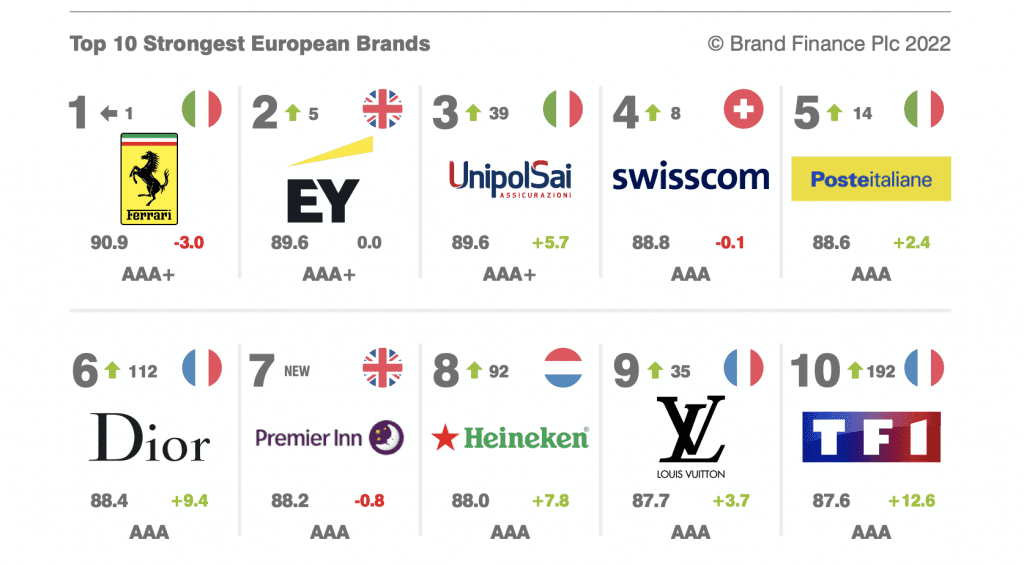
Elsewhere on the top 10 strongest list are LVMH-owned Dior, which rose 112 places from last year, to land in number 6 spot, and Louis Vuitton, which rose 35 spots from last year to take the number 9 position.
In terms of the significance of its annual “Brand Value” and “Brand Strength” rankings, Brand Finance has consistently held that “the most fundamental reason to conduct these valuation analyses is to find out how brands – that is, trademarks and their associated intellectual property – improve the financial performance of a business,” which brands accomplish “by impacting the perceptions that customers, employees and other relevant stakeholders.” The consultancy claims that as a result of its various ranking exercises, it has found that brand-specific elements and assets “consistently make up 20 to 25 percent of the value of listed companies.” Though, it cautions that this figure differs by “type of business, industry, segment, stage of life and many other factors.”
Brand Finance’s release of the “Europe 500” list comes as sales of luxury goods are likely to grow by at least 5 percent this year helped along by consumers in the United States and Europe, in particular. Bain & co. analysts said on Tuesday that they expect global sales of personal luxury goods to “reach at least 305 billion euros ($320 billion) this year, according to its most conservative estimate — and up to 330 billion euros in a more optimistic scenario — building on its fast rebound from pandemic lockdowns.” This compares with a previous estimate for 300 billion to 310 billion euros, per Reuters.




